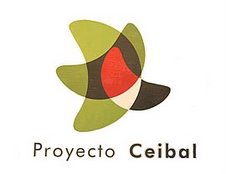Competition between laptops, software and much more
(traducido de/translated from: "Competencia entre laptops, software y mucho más") It's esteemed that by the end of May it will get open the international bid for purchasing the first set of laptops in Uruguay. Through this, it is intended to buy the first 100,000 computers, destined to cover the totality of 4 states ("departmentos") of the interior of Uruguay. After the call gets open, there will be a period of approximately 2 months in which the interested ones will be able to present their proposals.
It's esteemed that by the end of May it will get open the international bid for purchasing the first set of laptops in Uruguay. Through this, it is intended to buy the first 100,000 computers, destined to cover the totality of 4 states ("departmentos") of the interior of Uruguay. After the call gets open, there will be a period of approximately 2 months in which the interested ones will be able to present their proposals.
As it was indicated in a previous post, at the moment there are 3 firm competitors: OLPC/XO, Classmate and ITP-C. The terms that will decide who can compete and the way to designate the winner will be described in the bid terms, which is being elaborated by a committee specially designated for this aim. At this moment I do not have the names of the members to include them in this post, but I know it is a team of specialists in different areas - legal, technological, educative, etc. - with figures pertaining to different political parties and independent advisories.
Personally, the designated work party deserves me great confidence. Nevertheless, in such an innovating world-wide project, in which it seems that Uruguay has become one of the main points of battle - mainly between OLPC and Classmate, - the terms of the bid must be examined with a magnifying glass to avoid ungrateful surprises in the future. Some of the aspects I consider that we should have special care of are:
Base software. As Piscitelli says, this project is not a platform of promotion of free software. It cannot either force us to use only propietary software. The advantages of each one of these "worlds" must be put in terms of requirements for software. For example, enabling to install operating systems and applications of different software suppliers, that the source code of some applications can be acessed, etc.
Standards of interoperability. It cannot happen having to buy software - even worse if it can only be produced by one company - to be able to interact with th laptop, or some of its native applications. This means that the produced documents, as well as the applications that interact, must use interoperable formats.
Intellectual property (copyright, etc) of what is produced. It cannot be permited that the intellectual property of anything that gets produced with the laptops gets belonging to a private company. How could this happen? Let me put an example. Let's imagine that the camera application allowed us to publish the recorded videos in youtube with just a click. In that case we would be leaving part of the intellectual property of what was produced by the children to Google (according to what's specified in the terms of use of youtube). This case would not be serious, since the camera application is free software and if we don't like the terms of use, we could easily modify it so that it gets published elsewhere. However, if we were in a propietary application, we would not have this possibility. For example, the new versions of Microsoft Office interact with a service on the web called Office Live. Both softwares were designed altogether. What would happen if Microsoft remained with part of the intellectual property of the stuff published in Office Live? The same could happen with the platform used to publish the contents produced by the teachers and the children. To allow this would mean a loss in the educative sovereignty of the country.
Doing some futurology, I believe that in the mid-term these projects will force companies that produce propietary software to strongly change many of their licensing policies, if they wish to survive. In fact, Microsoft already has made it when started the "Unlimited Potential" program. But I believe that the changes will have to exceed the prices policies, going even to the way in which they treat intellectual property of an important part of their software.
There's a lot of discussion in the Web on the fact that XO is going to be able to run Windows. I would like seeing more that the subjects I'm raising here were discussed, as they really will define the course of educative projects 1 to 1 in the next years. It is an excellent moment for talking about it.



3 comments:
Pablo,
We at OLPC News could not agree more. There are many OLPC issues and the focus of debate should be around the best model of educational development. Hopefully, laptop competition will help develop it.
Muchas gracias por traducir los comentarios, espero que no te de mucho trabajo adicional. Si es necesario yo me ofrezco para traducirlos, o traducir cualquier material que precisen para el OLPC (eso sí es algo que puedo hacer para colaborar). Mi e-mail es gef@montevideo.com.uy .
una noticia en el sitio de la BBC londres, acerca de la puja de Intel por entrar en el interesante ( y lucrativo? ) mercado de las PCs para alumnos de bajos recursos
href="http://news.bbc.co.uk/2/hi/technology/6675833.stm
Post a Comment